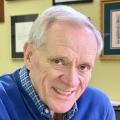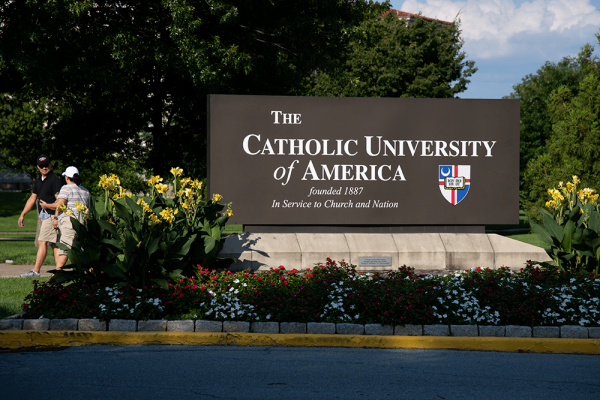On Saturday, Aug. 24, 2,330 pilgrims arrived in Santiago de Compostela and registered at the Oficina de Acogida al Peregrino, the Pilgrim’s Reception Office, which gives the official “Compostela” accrediting that they had completed a qualifying pilgrimage. This has been happening in some form since the Middle Ages. I waited in line with other pilgrims for about an hour before it was my turn, and was I called to Desk 2 out of 10. A kind woman examined my Credencial del Peregrino, a worn, folded document about the size of my passport, with multiple pages showing the stamps applied at the churches, cafes, bars, and albergues, or pilgrim’s hostels, which I had visited in the past 10 days, over 135 miles. She noted my country and my age, and with a smile congratulated me as she gave me my Compostela.
In July of this year 50,868 Compostelas were given out by this office to pilgrims completing the Camino de Santiago, or “The Way of St. James” — 51 percent were women, 49 percent men. While about 60 percent came from Spain, the other 40 percent, or 20,000 for that month, came from every part of the world. The day that I and my three American companions left the Albergue Turistico de Salceda and walked our final 20 miles into the Santiago, arriving exhausted but thrilled in front of the Cathedral, the city was thronged with pilgrims. This happens day after day. But who are these people? Why do they make this journey? And what does this say about the future of faith?
In the early, misty morning a young woman from Japan joined the path with us. She’s about to enter the job market and is traveling throughout the world beforehand and walking the Camino. She “has no religion,” but is interested that I’m a pastor.
Later when my group of four stops at a café for coffee, which becomes known by pilgrims as the daily “second breakfast,” a woman from Evanston, Ill., shares that her two older children are about to leave home. She’s looking at a new chapter and wanted some solitude. She’s going at a slower pace, and I think there’s more to what she shared.
On the Camino, pilgrims don’t remain strangers from one another; mini-communities, or “Camino families” seem to emerge along the way. A hard hike up a hill stops for us in La Faba at an albergue run by German volunteers supporting the Camino. Someone has a guitar, and a sing-a-long begins. Pilgrims use their smart phones to get lyrics to the songs they sing. When they break into Leonard Cohen’s “Hallelujah,” I’m stuck by how it seems appropriate. Cohen’s spiritual curiosity and plaintive wondering and wandering fits well with some of these pilgrims.
Lukas, an aspiring actor in the U.S., became a good friend of our foursome. He saw the movie The Way about seven years ago. Since then he’s read nearly every book about the Camino he could find. A singular intensity marks his journey, but he seems to treasure our companionship, and we his.
At a café in Gonzar, a father sits with his teenage son. Apologetically, he asks me my age, and then tells of how his father did the Camino. Now he’s taking the journey with his son.
Later, a Spanish woman is walking with her daughter. The conversation begins, and then I ask the simple question. “Why are you on the Camino?” I’ve become a widow, she confesses, but with a smile then says, “I’m doing this for him.”
In a long stretch on a hot afternoon, I’m joined by Jana, from Slovakia. She’s been working in HR with a start-up company but got “burned out.” She quit and has come on the Camino. She hasn’t even told her parents, fearing they would worry. But women make this journey alone and feel safe.
A man from Italy who has bought a bike along the Way joins me. He’s been teaching disabled young people for 20 years, and says he is exhausted. Now he’s captivated by the Camino. “I want to come back in October. Am I crazy?” he asks.
The convener of our group of four, Kyle Small, a professor of ministerial formation at Western Theological Seminary, began his journey on the Camino 20 days before David, Mark, and I joined him. He’s formed many friendships and shared stories, including of a Korean woman who is walking slowly and deliberately. Kyle’s prayed with her. When I wander into an ancient church, she’s there. We share in conversation, and I discover she’s a member of the Yoido Full Gospel Church in Seoul, a Pentecostal congregation and the largest church in the world. Her religious motivation is unapologetic.
As we get closer to Santiago, graffiti seems to increase, on bridges, tunnels, and mile markers. Some is just random. But then I read “Jesus Saves,” “Dieu est amour,” “Silence, Stillness, Presence, Now,” “Dios te habla, Dios te escucha,” and “Jesus Loves You.” Pilgrims are here for all sorts of reasons, but grace seems somehow to be in the air. And it is certainly under our feet, as we walk on pathways and stones where literally millions of pilgrims have gone before, in their own spiritual journeys.
Claire is from Melbourne, Australia. Our group met her along with way, enjoying this extraverted woman who was getting away from her job. In Santiago at the Pilgrim’s Mass at noon in the Cathedral, swarming with people, we run into her. She proceeds to tell me how she arrived yesterday and went to confession. She hadn’t done so since taking first communion as a child. She encountered three men studying to be priests along the Way, and now she was at Eucharist.
The Camino de Santiago slows down life, radically. You walk, daily, step by step. In my case, 350,000 steps. You become detached from normal preoccupations. Everything moves by a different rhythm. And time opens, for relationships, for silence, and for God.
Pilgrims on the Camino come with the own reasons, baggage, and hopes. And this is true of us all. Leaving Santiago I remember again we are all pilgrims with a story. Many are on paths seeking a more authentic encounter with God’s presence. But it takes intentional steps to change our pace and encounter one another as pilgrims on a journey along with Way. In our time of frenetic political intensity, within a culture addicted to speed, we need to hear and heed the call of this step by step pilgrimage in our journeys of faith.
Got something to say about what you're reading? We value your feedback!







